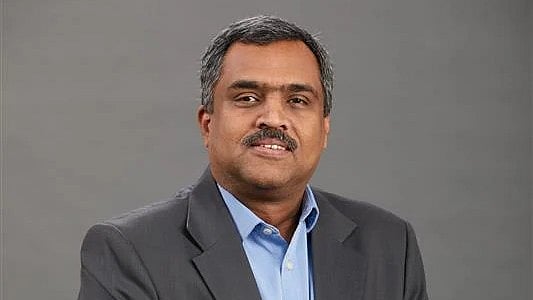
Infosys Foundation, the philanthropic and CSR arm of Infosys, last week announced eight winners at the fourth edition of the Aarohan Social Innovation Awards for transformative innovations in education, healthcare and environment sustainability. These innovators were awarded a total of Rs 2 crore. In an interaction with Uma Kannan of DH, Infosys Foundation Trustee Sunil Kumar Dhareshwar said there is a need for more people who look at social innovation in a very serious manner and build a vibrant ecosystem of innovators. Edited excerpts:
Can you tell us more about the Aarohan Social Innovation Awards and its beginnings?
The awards were first instituted in 2018 and the brain child behind this was Mrs Sudha Murty. She stepped down as the chairperson of the foundation a few years ago, after nearly 25 years of service. Her view was that you need to have innovation, and there has to be social innovation that should be accessible and affordable, because the purpose is for the larger social good. If you reach a larger section of the society and along the way, given that the foundation is part of Infosys, an IT company, technology needs to be part of these solutions, as it also brings the ability to reach remote parts of the country. The awards that have been set up are social innovation awards. Initially, when it started in 2018, it was just an award, but today, when we look at the fourth edition, we have now created an ecosystem of innovators. From 900 applications in 2018, this edition, we received about 2,065 across diverse areas.
Is there any particular focus area in terms of selection?
There are three focus areas that we've considered- education, healthcare, and environmental sustainability. And these also largely align with what Infosys Foundation is doing as part of its corporate CSR work. We believe that these three are the core pillars. We've had fairly equal kind of applications, and personally, I would like more to happen on the environmental sustainability side, because education and health have been there for many years. I'm not saying that more should not be done in these two areas, they are still inadequate. But I hope, in environment and sustainability, we will see more awareness and innovation.
Why are there not many innovations coming from the environment sustainability area?
One is that it needs a lot more R&D and investment. If you look at the social side, the biggest or the primary issue that you have is funding. When you say startups, there is a different way of looking at it, because they are primarily profit-driven, and therefore there are more funds and people who are also willing to invest in them. But when you look at the social innovation side of it, the funding is either inadequate or it is not consistent. Today, when you set up a startup, you get funding. In fact, many startups have enough cash, and we call the burn rate, whereas, on the social side, you don't get these commitments for a longer period. At Infosys Foundation, we work with NGO partners, and we commit to them that we will work with them for at least three to four years so that they don't have to search for any other funding. The second issue is to get the right set of people. There is also a challenge in terms of getting people engaged in social innovation, because people who are involved in the social sector do it part-time. You need someone who is willing to devote themselves to social innovation. At the end of the day, profit should not be the primary purpose under which you do social innovation, it needs to be sustainable. The third thing is to build that ecosystem. Today, we believe that we are on the path of building a larger ecosystem of partners, because you need philanthropy, foundations, NGO partners, policy makers, and the government, as they all need to work as an ecosystem that is able to deliver. More awareness will help in terms of building that.
What can be done to develop an ecosystem that is more into social innovation?
You need more people who look at social innovation in a very serious manner. The second is to build this ecosystem of all the stakeholders. The third one is building capability. You need to be in a situation where social innovators are sure of continuous funding, which happens in the startup side, so that they can start as an idea, do a prototype, and then be able to execute, scale and sustain it. And lastly, one thing that we should not forget is to ensure that it is inclusive. It should reach the people who need these solutions. These are the ways to look at it as we move forward in the next five years.
What role does technology play in terms of social innovation?
Technology is emerging and there is a lot more embedded technology that we can see today in solutions. Artificial Intelligence (AI) is evolving, and in the social innovation side, it's coming into play, and we'll possibly see more of it soon. Technology ensures that you are able to scale and reach a larger section of society.